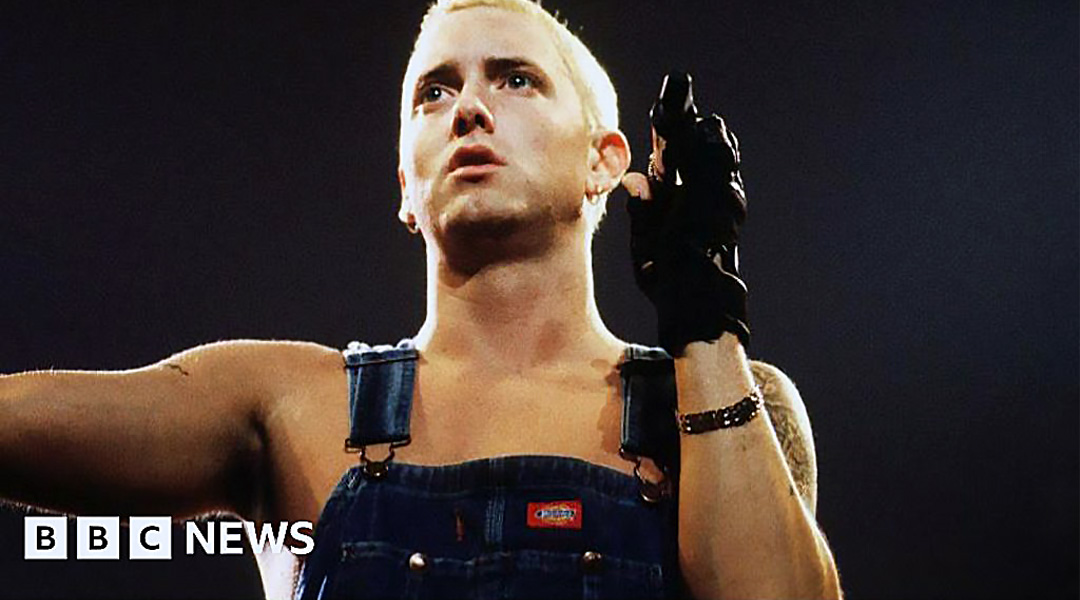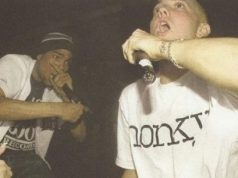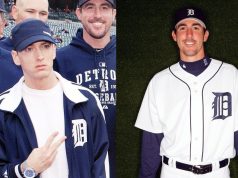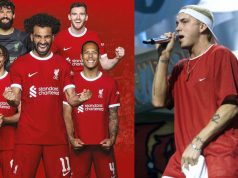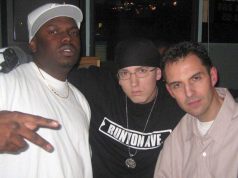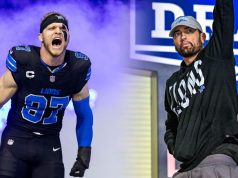What started as a middle finger to the mainstream became a cultural lightning rod. In a new anniversary feature, the BBC explores why “The Marshall Mathers LP” still stirs up controversy a quarter-century on.
The fact that the UK’s most prestigious broadcaster felt the need to publish a giant feature about the album on its anniversary and also add a content warning says a lot. Released in May 2000, the album shattered boundaries with its fury, absurdity, and raw lyrical dexterity, and, as the article points out, it still divides listeners to this day.
But the BBC piece is not just about shock value. Quoting extensively from the critics’ reviews of the time and later writers, the feature turns to Rolling Stone’s Anthony Bozza, who literally wrote the book on Em, reminds readers that Slim Shady wasn’t just a rage fantasy. “He was punching a hole through political correctness”, Bozza says, calling Eminem part of a larger pushback in pop culture at the time.
The attitude of that time is expressively summarised in an early MMLP review by Entertainment Weekly that called the album: “Indefensible and critic-proof, hypocritical and heart-breaking, unlistenable and undeniable”.
There is praise, too, for the album’s musical ambition. Critics note how Dre’s production stitched together everything from horrorcore gloom to Max Martin-esque pop textures. “Many tracks even use rockabilly guitar plucks that evoke Elvis directly”, the article quotes musician and writer Holly Boismaison who is currently working on a book about Eminem. “But Eminem’s using those pop beats to diss stars like he’s 2Pac”.
The feature dives into Eminem’s origin story, from his upbringing in Detroit’s working-class Black neighbourhoods to his early battle rap grind. His 1999 breakthrough with “The Slim Shady LP” set the stage, but MMLP gave his narrative three dimensions. As Boismaison puts it, “He deals with his personality by turning the characters in his musical universe into a funhouse mirror of himself”.
And, of course, there’s “Stan”. Called the album’s “most powerful” track by the BBC, it introduced a word now woven into internet language. Its eerie storytelling and commentary on fandom struck a nerve—and predicted a future of parasocial chaos online.
Not everything has aged well. Critics acknowledge the homophobic slurs scattered through the lyrics, though writer Craig Jenkins notes this was not unusual in ’90s hip-hop: “There was a lot in the music that made me wince”, he says. Even Eminem has since tried to explain it as “tongue-in-cheek”, adding, “The real me… has no issues with gay, straight, transgender, or women at all”.
The BBC article ends by placing MMLP in the same lane as South Park and nu-metal—an era of pop culture that gave a voice to a disaffected generation. Eminem, Bozza argues, “was the perfect record for this particular moment of disaffection.”
Twenty-five years later, Slim Shady still sounds like he is rapping from the edge of the world, and it turns out the world is still listening.
You can read the full article on the BBC website.


